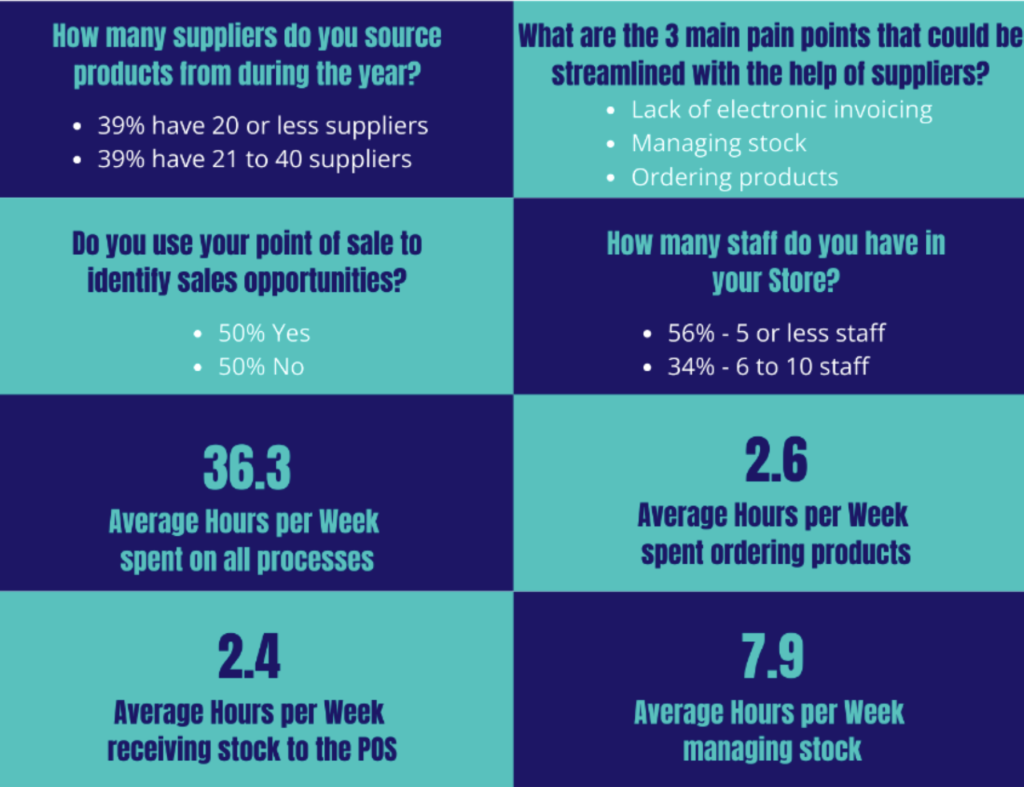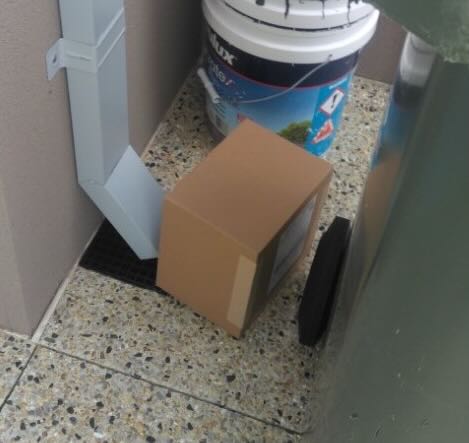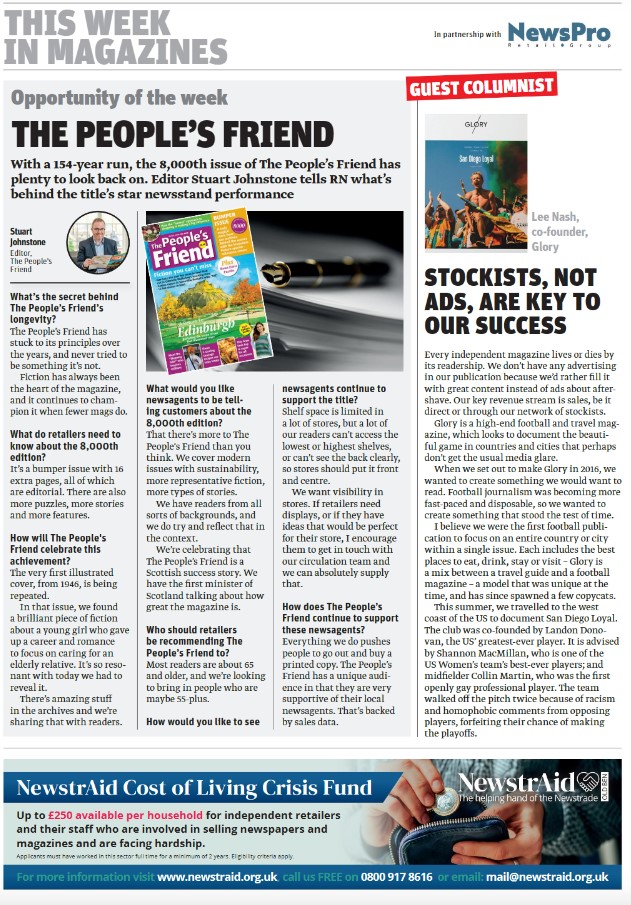A walk back into history
This, from May 30, 1999. It’s a speech delivered by then Minister for Financial Services and Regulation Joe Hockey. Here it is in its entirety:
Address to the Australian Newsagents’ Federation Industry Conference, Gold Coast
Good morning ladies and gentlemen and thank you to Bob Dean and the entire ANF board for inviting me to speak at your national conference, here in Surfers Paradise.
It has been an eventful six months for everyone involved in the newsagent industry. During this time, the industry’s future has at times seemed clouded and the way forward unclear.
In fact, for the past 20 years your industry has persevered under uncertain conditions.
But I am confident that we have reached a sound commercial solution to a situation that at one stage looked vexed and complicated.
So, now it is a good time to examine where we are, and importantly, how we got there.
I should say, that over this period, the ANF board has provided outstanding leadership to its members and remained focused on the issues needing to be thrashed out.
They have responded thoughtfully to the changes in the industry and represented – very robustly – the interests of members, and importantly, kept a keen eye on the future.
In particular, I would like to mention Bob Dean’s diligence in this whole process. His efforts have been outstanding continually travelling the country to represent his members in more than 80 meetings over the last 6 months.
Bob has ensured that the industry has approached the issue in a positive way.
This is evidenced by the QNF conference in March. I understand that the conference was very well attended and that it was a most productive forum.
Indeed, the positive attitude of newsagents, wanting to seize the opportunity to improve all aspects of the industry and ensure your future, is to be commended.
And now, after a solid 6 months of consultation, a competitive and equitable system, with greater freedom and greater flexibility for newsagents to manage their businesses with confidence, appears to be within reach.
As you all know, the need to consider the industry’s commercial framework had its genesis in the decision last November of the Australian Competition Tribunal.
In this case, the Tribunal found that aspects of the newsagency systems in NSW, the ACT, Victoria and Queensland no longer satisfied the public benefit test as required by the Trade Practices Act.
That is, the anti-competitive effects of the distribution systems outweighed the benefit to the public.
This meant that recently granted authorisations only protected arrangements preventing direct supply of magazines to sub-agents and direct supply of newspapers to ‘look-alikes’ until 1 July this year, and the direct supply of newspapers to sub-agents until 1 February 2000.
This was a time frame which the Government was very aware would concern many newsagents.
But we were also very aware that there needed to be an outcome that benefited newsagents, that benefited publishers and, very importantly, that benefited consumers.
From the outset, the Government was entirely sympathetic to the newsagents’ concerns and committed to the continuation of home delivery.
Indeed, we have been, historically, supportive of the industry over a number of years.
But the Tribunal’s decision was in keeping with the Government’s position on home delivery the principal public benefit claimed for the system.
In 1996 delivering on its election commitment the Government made a submission to the ACCC supporting the extension for another 4 years of the authorisation protecting the reliable, efficient and low-cost home delivery service for newspapers.
The ACCC and Tribunal adopted this time frame to make sure the industry had enough time to reform its arrangements.
I should emphasise that the ACCC and Tribunal are independent and not subject to any direction from the Government.
I should also emphasise that these arrangements between newsagents and publishers are private sector contracts, and as such, are totally at arm’s length from Government.
In other words, there’s not a lot a government could, or should, do.
It will always be up to any industry to change over time after all, as the Tribunal found the newsagency industry’s conduct, but for the ACCC’s authorisation, would have been in breach of the Trade Practices Act.
And while that is the case, the Government has always been very willing to help the industry make positive changes.
In the light of the first Tribunal decision in 1994 requiring reform and the decision last November, and in order to seek a way forward, I asked the ACCC to consult between industry groups and to report back by 15 February this year. This was then extended to 31 March.
In early April I announced that as the report contained commercially sensitive material it would not be publicly released.
Following this, on April 20 after an application from the Australian Newsagents Federation, the ACCC granted an interim authorisation to the Federation allowing it to negotiate with publishers and distributors on behalf of newsagents.
I believe this was granted to allow the industry to build on the momentum which had been generated by the earlier discussions, and to provide individual newsagents with the industrial power of collective bargaining which is required during times of change.
For individual newsagents, this means they will be protected during contractual negotiations.
Ladies and gentlemen, the entire process has been intense and exhaustive, but a process which could not have happened without the help of the ACCC, and in particular, the good work ACCC Commissioner Sitesh Bhojani, who personally participated in over 60 industry discussions.
But this was not a typical role for the ACCC.
It had no official duties to complete. Rather, the ACCC acted as voluntary facilitator, smoothing and lubricating the consultative process.
Indeed, despite being set a difficult task by Parliament to protect and promote competition, the ACCC devoted a huge amount of time and resources to facilitate genuine industry discussions for the newsagency system.
And as such, apart from impressing upon all parties the importance of frank and honest dialogue, the Government has stayed very much at arm’s length – not engaging in negotiations on behalf of any side.
We have had no direct involvement, because we believe it is not for the Government to determine the operations of markets.
But we have had a role to play.
You asked me to help bring the publishers genuinely to the negotiating table.
I did that.
You asked me to help create an environment where newsagents will not have the ACCC constantly looking over their shoulder.
I did that.
You asked me to extend the consultation period.
I did that.
And you asked me to help newsagents to collectively bargain during this time of change.
And I did that, too.
And, as a result, we fully support your preference for commercial contracts, as has been spelt out in the May edition of your industry journal, National Newsagent.
So where is the industry heading?
While I have not seen any contracts, I know that newsagents are being offered greater freedom and greater flexibility to shape their business as they choose.
For example, those newsagents who are now compelled to provide home delivery even where the delivery is at a loss, may have the option of selling-off this unprofitable side of the business.
I can well understand the frustration of a newsagent, awake at 5am, working through the morning and attending to a lunchtime rush, when a disgruntled home-delivery customer fronts up to complain about the plastic wrapping on their paper.
Now, the competitive framework that has been worked out should see the innovative newsagents thrive, with benefits to consumers including an even better home delivery system.
Newsagents will have more scope to manage their business, with the ability to shed unprofitable aspects.
There is no reason why any newsagents would be forced to close.
Very importantly, the Government has met its election commitment to preserve newspaper home delivery.
As a result, Australians can now be assured of continued delivery of their morning papers, while newsagents can be assured of a more certain environment in which to conduct their business.
In other words, newsagents are being given choice.
You are being given the choice to run your businesses in a more certain environment, and importantly, you are being given the choice of how you will adapt to your changing business environment.
The future is what we make of it.
The Government cannot guarantee any individual business or industry, but we have created a business environment of strong economic growth, with low inflation, strong consumer demand and low interest rates.
Ladies and gentlemen, in the face of rapidly changing uses of technology, I think this new commercial structure is a solid foundation for the future.
It is a structure, which will benefit Australia’s newsagents, and it is a structure, which will benefit Australia’s consumers.
And so it is a structure, which we would all do well to support.
…
Hockey was a politician. There will be some from our channel back then who will disagree with his take on what the government did and didn’t do for newsagents, and some who disagree with what the ANF at that time did or did not do for newsagents. In my opinion, newsagents were not well represented through the changes driven by the Howard government. Much was taken from us without compensation. We were ineffective in achieving a fair outcome for the thousands of family owned and run businesses. The government, which was elected as caring about small business, and newsagents in particular, failed our channel.




